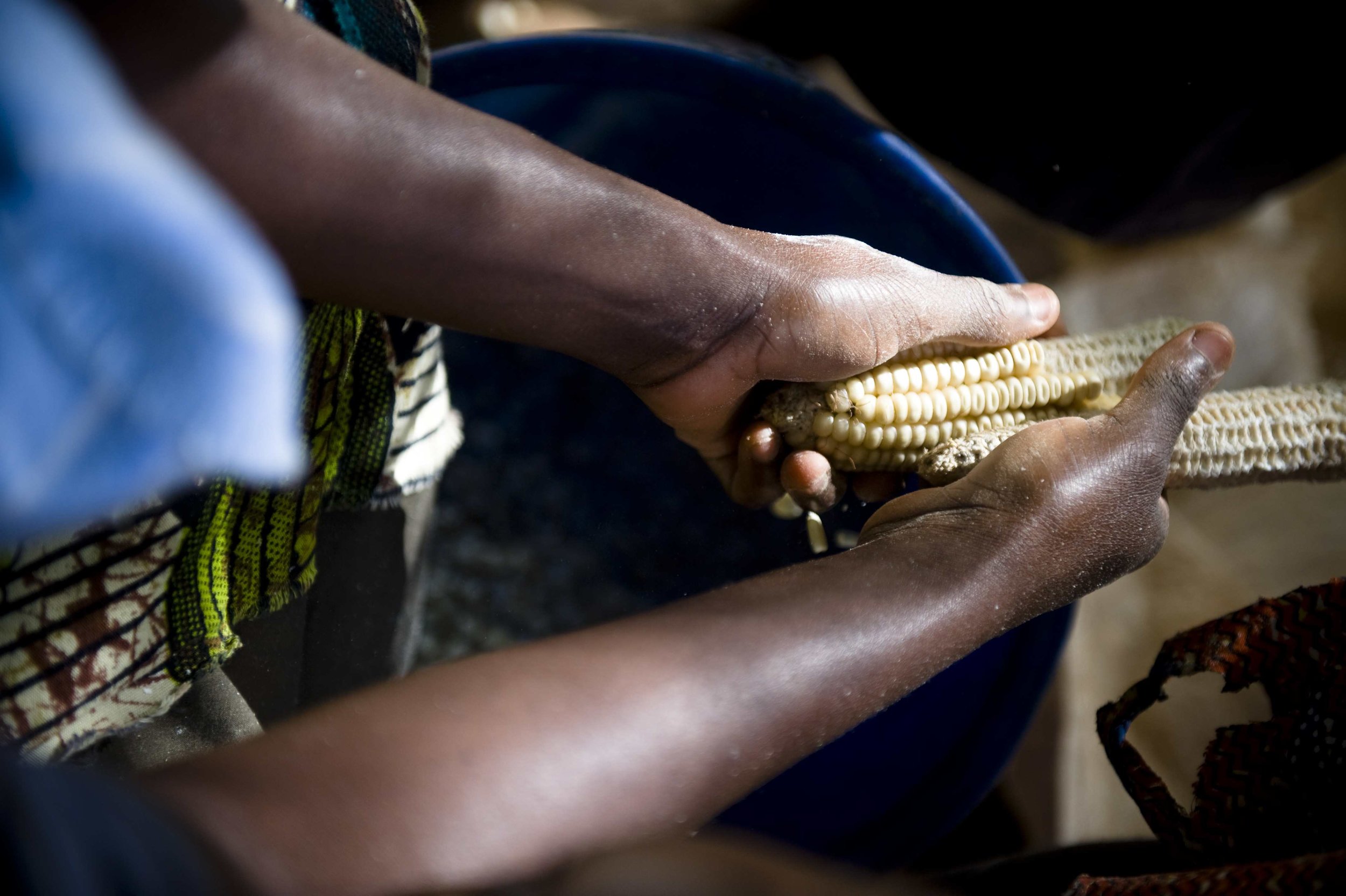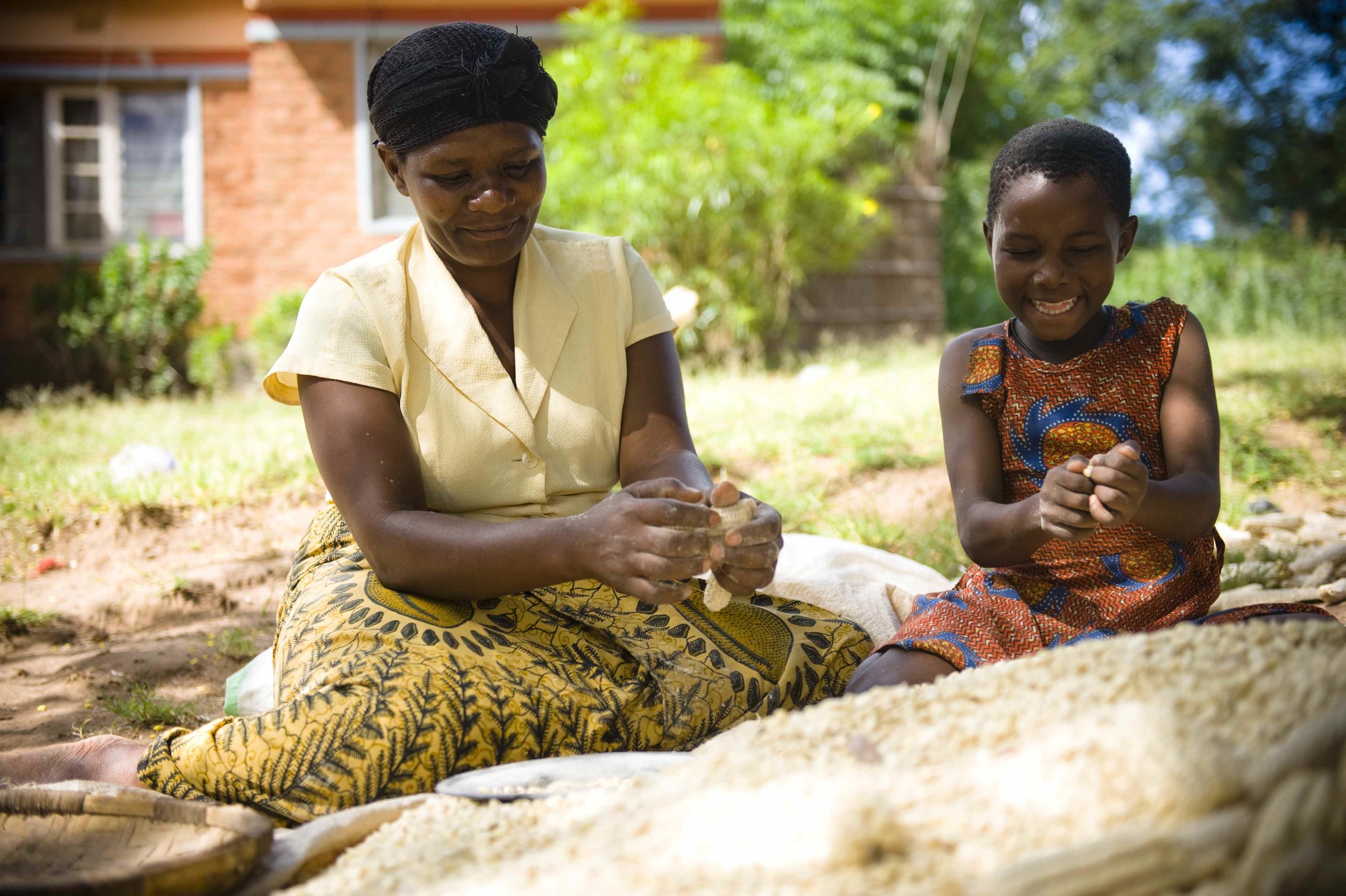Eating Well and HIV
 Eating well is particularly important when living with HIV because the disease weakens the immune system and increases the risk of repeated infections. A healthy diet prevents malnutrition and improves the immune system to help people stay strong.
HIV is most common in areas of extreme poverty, which makes regular access to healthy food difficult. Too often, families are already struggling to feed themselves on a steady basis. If a parent becomes ill, he or she may not be able to work, exacerbating the family’s insecurity. Usually an older child in the household will then leave school to start working.
Eating well is particularly important when living with HIV because the disease weakens the immune system and increases the risk of repeated infections. A healthy diet prevents malnutrition and improves the immune system to help people stay strong.
HIV is most common in areas of extreme poverty, which makes regular access to healthy food difficult. Too often, families are already struggling to feed themselves on a steady basis. If a parent becomes ill, he or she may not be able to work, exacerbating the family’s insecurity. Usually an older child in the household will then leave school to start working.
Knowing this, many community-based organizations often promote gardens that offer regular fruits and vegetables for families at low or no cost. They also offer supplemental food programs as a short-term measure, to provide food staples during a difficult time. This way, families can rely on their community to help and children can stay in school.
Community-based organizations also work with families on what it means to eat healthy. This guide, Eating Healthy, Staying Positive: Manual on Nutrition for HIV Positive People was published by the Southern Africa HIV/AIDS Information Dissemination Service, as a community resource for people living with or who are supporting people living with HIV. The guide provides information about the benefits of good nutrition for people who are HIV positive, the elements of a healthy and balanced diet, food safety, the role of nutrition in positive living and a very good glossary of food terms and tips for weight gain and healthy recipes.
The good people at Southern Africa HIV/AIDS Information Dissemination Service (SAFAIDS) encourage reproduction of the guide, as long as it’s not intended for profit, and only ask for full acknowledgement in reproduced materials.
 They hope the guide will be use by:
They hope the guide will be use by:
- People living with HIV and AIDS, and their support groups
- Families caring for people living with HIV
- Organizations working with people living with HIV
- Health workers or volunteers giving advice on nutrition to families or individuals living with HIV
We read the guide and promoted it in our weekly NewsFlash that goes out to 889 Africa-based subscribers.
If you don’t have time for the whole guide, don't worry. We pulled out our top three favorite tips to share here:
1. Food is important for everyone. We all need to eat in order to:
- Be healthy
- Protect against disease and fight infection
- Develop and repair cells and tissues in the body
- Stay alive and keep warm
- Move and work
2. If you are HIV positive, good nutrition that is well balanced is especially important for you. Food can improve fitness and quality of life. Eating sufficient amounts and a balance of different food helps to maintain body weight and muscle power, as well as keeping the immune system strong.
3. Benefits of good nutrition for people living with HIV or AIDS…
on your family and social life:
- Improving self esteem
- Maintaining positive attitude to life
- Enjoying sports and hobbies
- Spending more quality time with family and friends
- Having energy to care for loved ones
- Offering more time to prepare for the future of family/ friends
- Reducing the burden of care when sick
- Reducing medical costs
on your income generating activities:
- Reducing time off-sick
- Increasing time for income-generating activities
- Increasing possibilities for self-development
- Ability to pursue skills training or education
on your health by:
- Improving recovery from illness
- Reducing chance of infection
- Preventing weight loss
- Looking healthier
- Improving wound healing
- Increasing strength
- Improving concentration/alertness
- Feeling better
Check out the entire guide on the SAFAIDS website and stay healthy, everyone.



